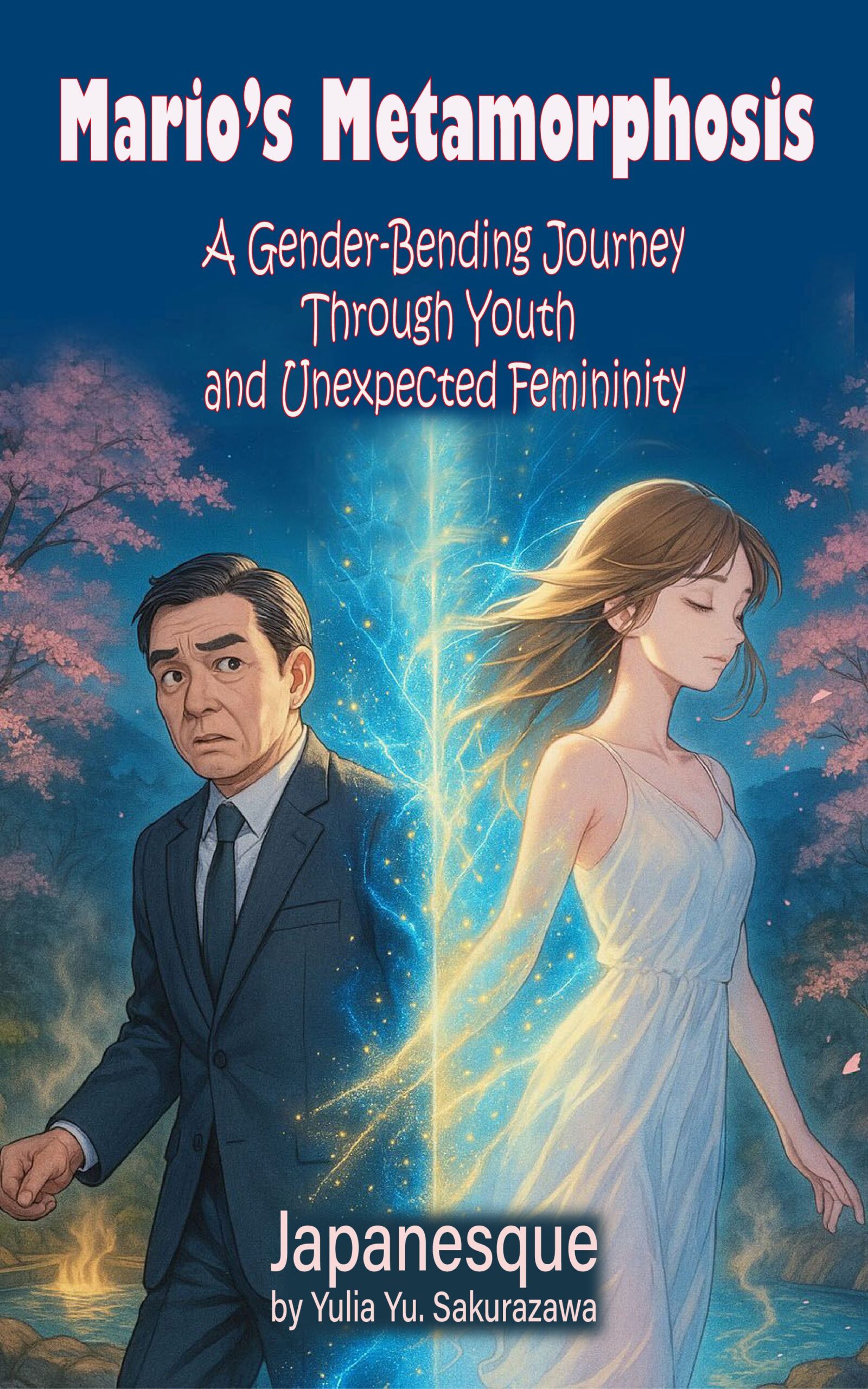Title: Mario’s Metamorphosis
Subtitle: A Gender-Bending Journey Through Youth and Unexpected Femininity
Series: Japanesque
Author: Yulia Yu. Sakurazawa
Mario’s Metamorphosis takes a delightfully chaotic plunge into the realms of age regression and gender transformation. The protagonist, Mario, a freshly retired 60-year-old salaryman, finds his mundane anxieties about retirement upended by a chance encounter with his first love, Misaki. What begins as a nostalgic trip to a legendary “rejuvenating hot spring” quickly spirals into a series of increasingly bizarre and hilarious identity crises.
The novel excels in its exploration of Mario’s internal struggle as he navigates life first as a 20-year-old woman, then as a constantly fluctuating being between genders and ages, and finally as a young girl. The daily indignities and unexpected pleasures of his new female body are chronicled with both humor and surprising depth, from experiencing PMS and periods to dealing with unwanted male attention. The narrative cleverly uses these transformations to subtly critique traditional Japanese societal roles, particularly those of salarymen and housewives, and the expectations placed upon individuals based on their age and gender.
Misaki, Mario’s enigmatic first love, acts as both instigator and guide, her dominant and somewhat sadistic personality driving much of the plot’s outrageousness. The introduction of her daughter, Masako, adds another layer of complexity and romantic entanglement, further challenging Mario’s sense of self and his existing marital commitments. The shifting power dynamics within relationships between Mario and his wife, Taeko, and later with Misaki and Masako are a central theme, often leading to comedic misunderstandings and poignant reflections.
While the plot moves at a rapid, almost breathless pace, typical of light novels, it occasionally sacrifices detailed emotional arcs for quick comedic setups and plot twists. However, Mario’s voice, whether as a confused 60-year-old man, a frustrated young woman, or a bewildered child, remains engaging and relatable. The ambiguous ending, with Mario embracing a new life as a child, leaves the reader with a sense of bittersweet contentment, highlighting themes of acceptance and finding joy in unexpected transformations.
Fans of Japanese light novels, especially those who enjoy gender-bending narratives, slice-of-life humor, and stories of self-discovery through bizarre circumstances, will find Mario’s Metamorphosis a unique and entertaining read.
